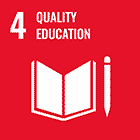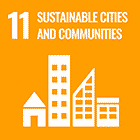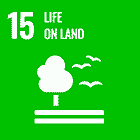Let’s keep in touch!
The latest news of the Metis Fund, delivered straight to your inbox!
In Guadalajara, local residents are taking over an open dump to plant trees and turn it into a natural space in the city. The painter Priscillia Martinez has seized on a practice rooted in Mexico’s political history, muralism, to support citizen mobilisation.



Design the city of the future, preserve biodiversity
With its vast territory and varied ecosystems, Mexico is one of the 17 richest countries on the planet in terms of biodiversity. Faced with the many threats to its natural heritage, action needs to be taken on a variety of scales, from global to local. Guadalajara, capital of the state of Jalisco, is the country’s second largest city. In recent decades, its rapid growth has led to the destruction of biodiversity.
In the Tlaquepaque district, during the containment period for the Covid pandemic, local residents rallied together to take over a wasteland, an open-air rubbish dump, and oppose the authorities’ plans to build a car dealership there. They cleared the land and began planting trees. It was against this backdrop that the Métis Fund, in partnership with the State of Jalisco and more specifically its Ministry of the Environment, invited a local artist to move into the neighbourhood, get to know the residents and paint a fresco on the wall adjacent to this wasteland.
of the world’s biodiversity sheltered in Mexico
hectares of wasteland protected as a nature area in Guadalajara
people involved
Committed to art as a vehicle for social change, Priscilia Martinez has taken up a practice rooted in Mexican tradition: muralism. Born in the revolutionary Mexico of the 1920s, when the majority of the population was illiterate, this is a political art form accessible to all, which seeks to rally people around common references through frescoes painted in public places. After studying at the National Institute of Fine Arts in Mexico City, Priscilia Martinez travelled to the United States, Morocco, France and Bosnia. During her travels, she painted frescoes, drawing her inspiration from exchanges with local people.
With the help of the Metis fund, Priscillia spent several months working on this project in her home town: ‘The local people taught me a lot about biodiversity and the environment, and I think I can teach them about art and culture. We’ve built up a very strong relationship throughout the project – and I think it’s going to last forever’.
A social mediator leads discussions with residents, and workshops are held with biologists on recognising urban flora and fauna, returning monarch butterflies to the wild, and pollination. Priscilla’s monumental fresco evokes all these exchanges – the faces of local residents and the façades of houses mingle with the scarlet macaws and wild flowers – and bears witness to the citizens’ initiative to transform the wasteland into a space for nature in the city.
At the heart of an area prone to tensions, the project opens up a dialogue between local residents and public authorities. The fresco both reinforces and testifies to the citizens’ mobilisation, and helps to make the wasteland a sanctuary. Its unveiling mobilised a number of local decision-makers, including the Governor of the State of Jalisco, who officially declared the area an urban park, in line with the demands of the local residents.
A retrospective exhibition was held at the French embassy and then at the University of Mexico, which also organised a dialogue on building an urban community.